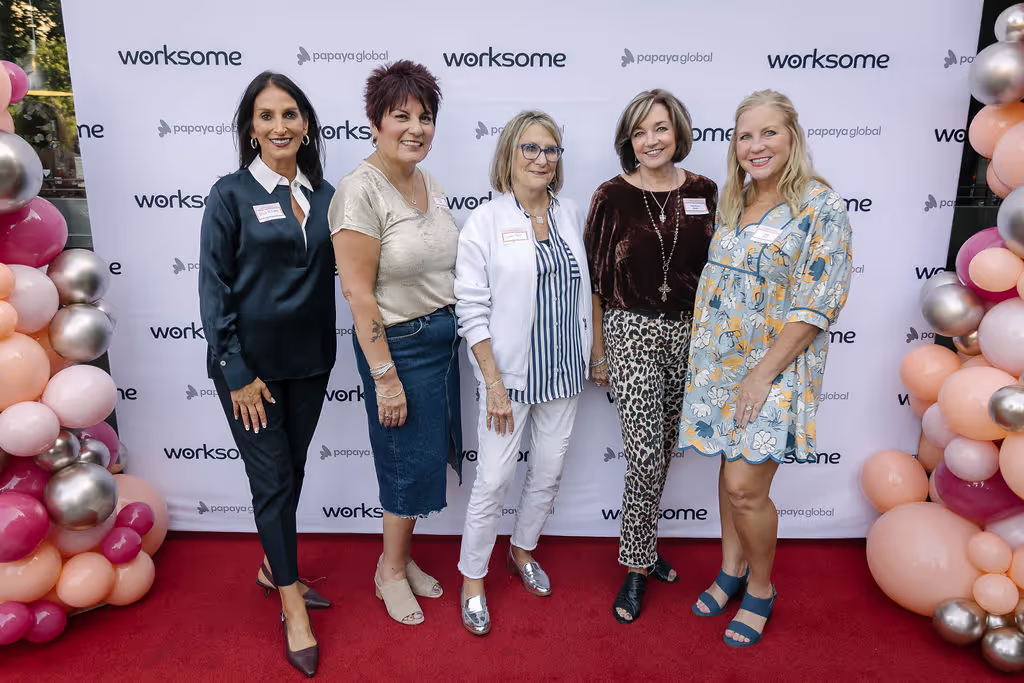As an individual working in Talent, Operations, or HR, you might believe that you don't have the power to affect your company's bottom line, or that your role is at risk of cost-cutting. However, you actually have control over your company's freelance operations and, therefore, the ability to make a significant impact on your agency or group.
At Worksome, we spoke with US agency leaders who are responsible for freelance hiring, and we identified five key areas of focus:
1. Sourcing Freelancers
You use your brand to sell, to attract permanent staff, and to create a company culture. So why not actively use your brand to attract the best freelancers in the market and create a hyper-engaged and readily accessible talent pool? This can be easily managed with simple technology, and it costs much less time and money than managing a fractured set of traditional talent channels.
2. Talent Pooling
If you work for a holding group or a big agency, it's likely that you have already found, spoken to, or hired every freelancer across your business that you would ever need for future roles. So why start again on every brief? Instead, create an active, engaged talent pool of shared talent that can fill any need on any timescale. Silos, manual processes, freelancer networks disappearing from your business when critical staff leave, plus the belief that you will lose your talent to other agencies if you share, are all factors that are holding you back. Remember, your talent is already everyone's talent. The key differences in securing the best freelancers are a lack of communication, poor engagement strategy, a refusal to share, the absence of fluid onboarding/offboarding processes, and slow payments.
3. Using 1099s vs. W2 Freelancers
If your freelancers are genuine independent contractors, working as a W2 employee differs from how they want to work. Not having a robust, safe, and cost-effective way of hiring 1099 freelancers is costing you time, money, and talent. You can save up to 27% by correctly classifying just 10% of your workforce as independent contractors instead of employees. Ask your CFO if they are interested.
4. International Hiring
Are you creating an international talent pool of the best freelancers from around the world? These individuals may have the same or better skills as local talent, but they come at a fraction of the labor cost. Can you help your new business teams win international accounts by having ready-to-go, compliant, cost-effective, and world-class local consultants? It's easier than you think when you use the right technology and partner.
5. Get rid of Manual Processes and Embrace Technology
Asking your CFO or COO to fill out 50 Google forms a week to approve freelance hiring, creating manual contracts in HR, chasing PO numbers, making calls, sending emails, fielding hundreds of incorrect invoices from freelancers, or tying up your legal department is hurting your bottom line through loss of productivity. Let's not even get into the frustration it's causing you and your freelancers.
The pressure is on in Adland, and things remain highly competitive. Now is the time for Ops, HR and Talent to rise to the challenge and offer solutions that save money, time, and increase the chances of new client wins. If you are a busy agency or global holding group and you don't have central technology managing your global freelancer populations, you are already uncompetitive against some of your peers.
The traditional hiring and firing cycles of permanent staff within agencies are gradually changing to a ramp-up and down of flexible freelance talent. Whoever focuses the most on making processes easier, improving the freelancer experience, and using the smartest technology, wins.


%20(12).webp)

































